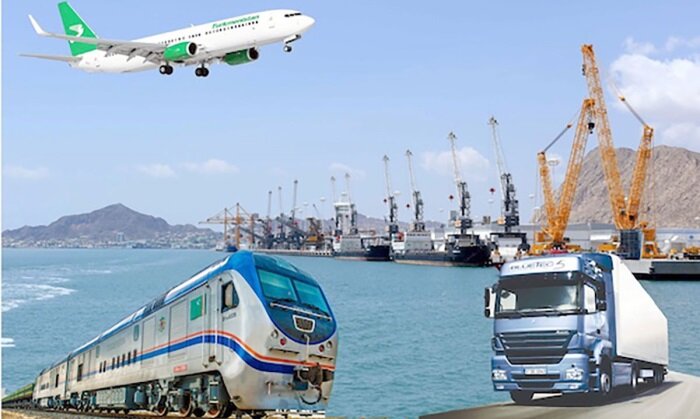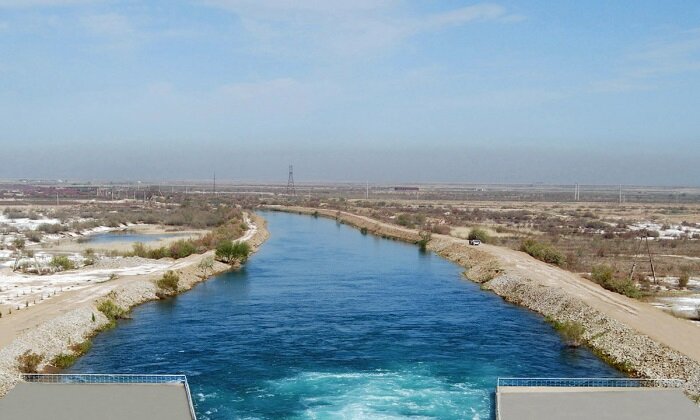Bakhrom Khamroev noted that the region was facing more serious threats today than militant radicals.
 The regional security issue in the post-Soviet space has never lost its relevance. As for Eastern Europe, the security issue closely comes down to politics – the decisive factor is connected specifically to NATO.
The regional security issue in the post-Soviet space has never lost its relevance. As for Eastern Europe, the security issue closely comes down to politics – the decisive factor is connected specifically to NATO.
The Central Asia countries are quite another matter. For decades, the regional security issue in this region has been associated with religious radicals, extremists and the unstable situation in Afghanistan. Does everything amount only to militants with not entirely clear goals? Is Turkey capable of maintaining security in the region, or is it pursuing completely different goals? The CentralAsia.news staff called an expert on the Central Asian states Bakhrom Khamroev for a comment.
‘Strict regime’
The interlocutor did not start with traditional phrases about international terrorists, radicalization in society or the situation in Afghanistan. Khamroev spoke about the dangers of the authoritarian regimes in some countries of Central Asia, including Kyrgyzstan. He believes that authoritarianism is directly interrelated with critical problems within the country that intertwine with the overall situation in the region.
“It is not by chance that I mentioned Kyrgyzstan. Until recently, I would not have included it in the list at all. As a result of recent changes in the political system of the Republic, the regime of government in this state has become presidential. Unfortunately, it is this regime that has become synonymous with authoritarianism in the region, the future of this country arouses concern,” Khamroev said.
While Kazakhstan is maintaining a relatively decent standard of living thanks to its natural resources, Tajikistan and Uzbekistan are patching holes in the budget in the face of movement restrictions for migrant workers and the coronavirus situation by frantically accumulating foreign loans, which are certainly a burden on the shoulders of their people.
“In doing so, none of these countries are implementing structural reforms (with the exception of some cosmetic measures aimed at strengthening the reputation of the President of Uzbekistan). I do not expect to see positive changes in these states. On the contrary, social tension is growing and social stratification is deepening, which creates an explosive atmosphere,” the interlocutor explained.
Under these circumstances, local conflicts were occurring, like the Kyrgyz-Tajik border clashes, Khamroev said. Naturally, the authorities of both Republics use them to ‘warm up’ patriotic sentiments that have weakened against the background of the crisis, and successfully create an image of an enemy that distracts the population from pressing problems. The expert noted that the magnitude of the crisis was so sheer that such events were unable to distract the people for a long time, and the problems continued to worsen.
The threat of terrorism as a screen
The long-exploited themes of religious extremism, international terrorism and the Afghan threat serve as factors that distract from the nature of the elites who have seized power in the region and the social, economic and political problems generated by their rule. Khamroev noted that foreign players from among the great powers exploited the same themes to justify interference in the internal affairs of the Central Asian states and influence the political, social and cultural agenda. Systematic human rights violations in the region and the irremovability of the elites and corruption, causing much more damage than terrorist attacks that practically do not exist, are ignored behind the constant speculations about regional security.
Games of Turkey
Together with the Transcaucasia and the Middle East, the Central Asian region is part of the zone of Turkey's interests. Khamroev stressed that Ankara’s attitude towards the Central Asian states did not differ from that of the great powers. They do not regard the countries of the region as fully sustained and independent.
“For them, this is just a field of influence and a “big game”, not a subject of international politics. Accordingly, no one is interested in promoting truly independent integration processes and creating a large Central Asian space, historically bound together by geography, culture and religion. Moreover, such a space would be perceived as an uninvited challenge to the existing system. However, as I have noted, the Republics have the potential for integration. Instead, we saw not centripetal, but centrifugal tendencies, as the recent events on the Kyrgyz-Tajik border had shown especially vividly, the expert said.
Khamroev said Turkey with its policy of pan-Turkism, re-adopted after the resignation of Prime Minister Ahmet Davutoglu who promoted the concept of neo-Ottomanism, was playing toward dissent within the Central Asian space, driving a wedge between the Turkic and numerous Tajik and Russian populations in the region.
Turkey is very active in the humanitarian sphere, promoting pan-Turkic projects (it must be understood that religion is used precisely for these purposes). Turkish business is very active in the region. However, Ankara had no real opportunities to ensure stability and healthy economic and political growth of the region, he emphasised.
“Pan-Turkic sentiment disorients the population and contributes to tension and dissent instead of integration processes. It should be understood that Turkey is a NATO member with the second most powerful army. Naturally, this situation irritated both Russia and China that perceived such a situation as a threat, forcing them to pursue a more active, sometimes power politics in the region, which did not contribute to stability either, the expert said.
The interlocutor added that Ankara only created further tension in the region.





